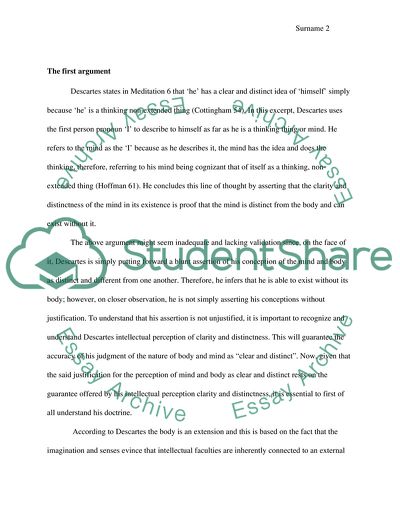Cite this document
(Descartes: Sixth Meditation and Distinctness of Body and Mind Essay Example | Topics and Well Written Essays - 2750 words, n.d.)
Descartes: Sixth Meditation and Distinctness of Body and Mind Essay Example | Topics and Well Written Essays - 2750 words. https://studentshare.org/philosophy/1822321-descartes-meditation-6
Descartes: Sixth Meditation and Distinctness of Body and Mind Essay Example | Topics and Well Written Essays - 2750 words. https://studentshare.org/philosophy/1822321-descartes-meditation-6
(Descartes: Sixth Meditation and Distinctness of Body and Mind Essay Example | Topics and Well Written Essays - 2750 Words)
Descartes: Sixth Meditation and Distinctness of Body and Mind Essay Example | Topics and Well Written Essays - 2750 Words. https://studentshare.org/philosophy/1822321-descartes-meditation-6.
Descartes: Sixth Meditation and Distinctness of Body and Mind Essay Example | Topics and Well Written Essays - 2750 Words. https://studentshare.org/philosophy/1822321-descartes-meditation-6.
“Descartes: Sixth Meditation and Distinctness of Body and Mind Essay Example | Topics and Well Written Essays - 2750 Words”. https://studentshare.org/philosophy/1822321-descartes-meditation-6.


